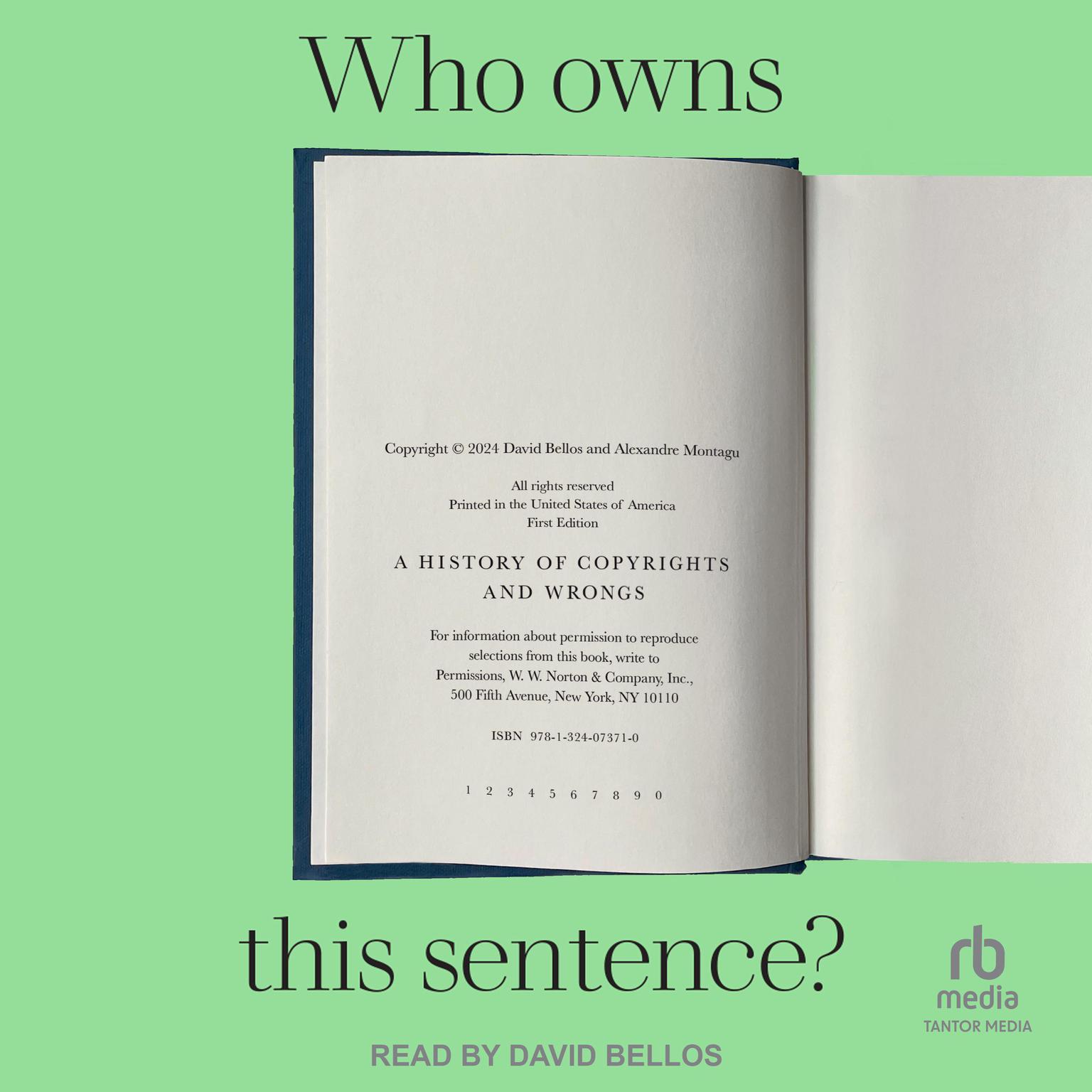 Play Audiobook Sample
Play Audiobook Sample
Who Owns This Sentence?: A History of Copyrights and Wrongs Audiobook
 Play Audiobook Sample
Play Audiobook Sample
Quick Stats About this Audiobook
Total Audiobook Chapters:
Longest Chapter Length:
Shortest Chapter Length:
Average Chapter Length:
Audiobooks by this Author:
Publisher Description
Copyright is everywhere. Your smartphone incorporates thousands of items of intellectual property. Someone owns the reproduction rights to photographs of your dining table. At this very moment, battles are raging over copyright in the output of artificial intelligence programs. Not only books but wallpaper, computer programs, pop songs, cartoon characters, snapshots, and cuddly toys are now deemed to be intellectual properties—making copyright a labyrinthine construction of laws with colorful and often baffling rationales covering almost all products of human creativity.
It wasn't always so. Copyright has its roots in eighteenth-century London, where it was first established to limit printers' control of books. But a handful of little-noticed changes in the late twentieth century brought about a new enclosure of the cultural commons, concentrating ownership of immaterial goods in very few hands. Copyright's metastasis can't be understood without knowing its backstory, a long tangle of high ideals, low greed, opportunism, and word-mangling that allowed poems and novels (and now, even ringtones and databases) to be treated as if they were no different from farms and houses. Principled arguments against copyright arose from the start and nearly abolished it in the nineteenth century. Nonetheless, countless revisions have made copyright ever stronger.
Download and start listening now!
Who Owns This Sentence? Listener Reviews
Be the first to write a review about this audiobook!
About the Authors
David Bellos is a well-known translator of modern French fiction and the author of several prize-winning biographies of French literary figures. His irreverent study of translation, Is That a Fish in Your Ear?, was a runner-up for the Los Angeles Times Book Prize and has been translated into Korean, Spanish, German, and French. He teaches French and comparative literature at Princeton University and holds the rank of Officier des Arts et des Lettres.




